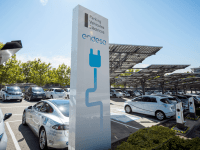A new report assessing the impact of the EV transition on employment in the EU’s automotive powertrain sector forecasts a 43% drop in employment opportunities up to 2040.
The report from Strategy&, PwC’s global strategy consulting team, commissioned by LEPA the Brussels-based European Association of Automotive Suppliers, predicts up to half a million jobs will be lost in traditional internal combustion engine powertrain production.
The analysis suggests these will be partially compensated by new opportunities in EV powertrain production, which will generate 226,000 new jobs, but existing automotive suppliers are not well positioned to take advantage.
The report considered three scenarios with market shares for electrified vehicles of 50%, 80%, and 100% by 2030.
LEPA says the automotive manufacturing sector is responsible for more than 5% of the overall manufacturing employment in 13 EU Member States, with more than 60% of these workers employed by automotive suppliers.
The study, it adds, provides a much-needed European-wide assessment and further identifies the risks and opportunities in seven major production countries for automotive components (Germany, Spain, France, Italy, Czechia, Poland, and Romania). The study is also the first to evaluate the impact of different policy pathways to reach Green Deal objectives with a focus on automotive suppliers.
LEPA says that while automakers have greater capacity to divest activities to compensate for a loss of activity in the powertrain domain, automotive suppliers can react with much less agility, as they are bound by long-term contracts with vehicle manufacturers and have less access to capital to invest in the transformation of their business models.
The study substantiates that electric vehicle opportunities hinge on the establishment of a deep EU battery supply chain, the timing and likelihood of which are still uncertain.
While electrification puts powertrain employment at risk on the one hand, other workforce skills around areas such as software or infrastructure will be needed in the future. The future value-add and job creation in powertrain technologies depends on local battery production in Europe.
Henning Rennert, Partner at PwC Strategy& in Germany says, “The study substantiates that up to 70% of the value creation related to electric powertrains will be connected to the processing of battery materials, the production of battery cells and cells modules, and the assembly of battery systems.
“These activities will not necessarily be with the same companies or in the same regions, as they require significantly different skills and expertise compared to conventional powertrain technology and are therefore unlikely to provide opportunities to most powertrain-oriented automotive suppliers.
Earlier research by CLEPA illustrated that battery production provides relatively more jobs for academically schooled employees and less for the mechanical workers that are now producing parts related to the internal combustion engine.
Key findings:
- A slight employment increase in ICE powertrain is expected between 2020 and 2025 due to advanced ICE technologies (EURO7) and demand increase, followed by constant decline.
- 226,000 new jobs are foreseen in EV powertrain production (assuming an EU battery chain), with a net loss of 275,000 jobs (-43% jobs) projected from now until 2040.
- 501,000 auto supplier jobs in Internal Combustion Engine (ICE) powertrain components production are expected to become obsolete if technology is phased-out by 2035 (84% of current ICE jobs).
- Of those half a million jobs, 70% (359,000) will most likely be lost in a 5-year period from 2030-2035.
- There is not a 1:1 compensation from ICE to EV powertrain employment; different companies, different skill sets, different regions and at different times.
- Western European countries will likely be best placed as strongholds in EV production. By contrast, Central Eastern European countries will shape the run-down of ICE vehicle production.





